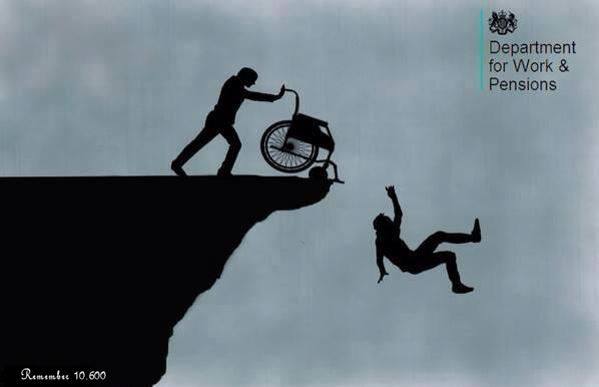
By John Pring Disability News Service August 17th 2017
Disabled campaigners have written to a government minister to warn him that “alarm bells are ringing” over the “massive discrepancies and inconsistencies” in the way the criminal justice system deals with disability hate crime prosecutions.
The Disability Hate Crime Network says there is “increasing concern” over these failings.
And it has asked solicitor general Robert Buckland to create “tighter and understandably clear guidance”, and to pressure the system to comply with the rules on disability hate crime.
Stephen Brookes, a coordinator of the network, says in the letter that he and his colleagues felt “deep dismay” that six recent court cases involving violent attacks on disabled people – reported last month by Disability News Service (DNS) – had not been treated as disability hate crimes.
Three of the six cases, spread across England and Wales, were murders, another saw the offender jailed for manslaughter, while two victims survived the violent assaults.
One case saw a man with learning difficulties tortured for a month in a “prolonged period of sadistic torture and humiliation”, including having his teeth knocked out with a hammer and chisel, and being forced to eat one of his own testicles, before his body was dumped on wasteland.
Another saw a man, again with learning difficulties, stripped and tortured over 24 hours, in a prolonged, sadistic assault described by a judge as “gratuitous degradation”.
In each of the six cases, which all led to convictions, the offences involved violent, repeated assaults on the disabled person, but none of them saw an increase in the sentences handed to the offenders under section 146 of the Criminal Justice Act 2003*.
The six cases suggested yet again – following many other horrific offences reported by DNS over the last eight years – that there were enduring and troubling flaws in the way the criminal justice system, particularly within the police and judiciary, deals with disability hate crime.
Brookes says in the letter: “Once again we see that it seems to be difficult to prove an offence is a disability hate crime under current legislation especially if the case is not supported by absolute DHC based evidence.”
The letter also points to another case reported by DNS last month, which again saw a police force criticised for its alleged failings, this time involving a young autistic man, Daniel Smith.
Smith had been held in a police cell for eight hours, after he had defended himself from a vicious disability hate crime (DHC) in a local park in Rushden, in October 2015.
He was only finally able to clear his name after a six-month ordeal which saw him dragged through the criminal justice system by the police and Crown Prosecution Service (CPS), before he was eventually cleared of assault charges by magistrates.
Brookes says in the letter to the minister that the way the courts deal with disability hate crime is “still a mockery” and that – even if section 146 is mentioned by prosecutors – “too many of the judiciary just don’t get it, or don’t want the complication”.
He says that “where communities, disabled people, CPS and police work together on training and implementation and have effective and closely monitored reporting processes, then results are good”.
But he says that the seven cases reported by DNS “are enough to set alarm bells ringing, and that we do need to work together on a better and more cohesive approach by all parties to the reality of failing faith by disabled people that they will get anything near justice when victims of disability hate crime”.
A spokeswoman for the Attorney General’s Office said: “We have received the letter from Mr Brookes and will be responding fully in due course.”
Meanwhile, the Home Office is seeking applications for new funding from anti-hate crime groups in England and Wales.
The Community Demonstration Project fund supports schemes working to prevent hate crime, improve support for victims, and increase the reporting of hate crime.
Projects can cover all forms of hate crime, including on the basis of race, nationality, ethnicity, religion, disability, sexual orientation or transgender identity.
About eight projects are expected to be funded through the second round of the £900,000 three-year scheme.
*Section 146 of the Criminal Justice Act 2003 imposes a duty on a court to increase sentences for offences motivated by disability-related hostility, while the Legal Aid, Sentencing and Punishment of Offenders Act 2012 doubles to 30 years the starting point for sentences for disability hate crime murders
